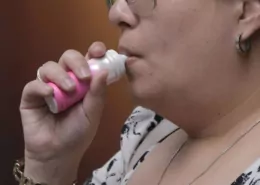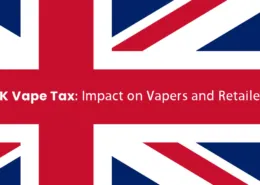Singapore Strengthens Joint Enforcement to Curb E-Cigarette Circulation
Ministry of Health to Collaborate with Other Agencies in Crackdown on E-Cigarettes
Despite Singapore’s ban on the sale and use of e-cigarettes, the Ministry of Health (MOH) has noted that the public still has access to these products. In response, the MOH plans to intensify joint enforcement efforts and public education to combat the circulation of e-cigarettes, according to a report by Lianhe Zaobao on December 19.
Multi-Agency Approach to Tackle E-Cigarette Issue
The MOH and the Health Science Bureau (HSB) issued a joint statement on December 19, revealing that the public can still purchase e-cigarettes through chat software like Telegram or while traveling abroad. To prevent the e-cigarette problem from escalating, the MOH will collaborate with other government agencies to strengthen enforcement and public education efforts.
The HSB will partner with the Immigration and Checkpoints Authority to conduct joint operations at ports, land checkpoints, and airports, starting with Changi Airport. These operations aim to strictly inspect incoming passengers for e-cigarettes and impose fines on offenders. The HSB will also work with the Ministry of Communications and Information and the Infocomm Media Development Authority to enhance the monitoring and crackdown on online e-cigarette sales and advertisements.
Increased Enforcement in Public Spaces and Schools
The MOH has also joined forces with the Ministry of Education, National Environment Agency, National Parks Board, and Singapore Police Force to increase enforcement against the possession and use of e-cigarettes. Since December 1 of the previous year, environmental agency enforcement officers have been authorized to take action against e-cigarette users or owners, with some cases being referred to the HSB for follow-up.
Inspections will be intensified in public places such as the central business district, shopping malls, parks, smoking areas, bars, and clubs, with on-the-spot fines for offenders. In schools, e-cigarettes will be confiscated from students found using or possessing them, and parents and the HSB will be notified to strictly punish the offending behavior.
Alarming E-Cigarette Statistics and Legal Consequences
According to the latest data released by the HSB, 860 individuals were caught selling and smuggling e-cigarettes and accessories between 2018 and 2022, with 145 of them being brought to court. In the previous year, 4,916 people were arrested for using and possessing e-cigarettes, nearly tripling the number from 2020. From April to August of the current year, 18 people were sentenced for selling e-cigarettes and accessories.
Minister of Health Wong Yi Kang stated in a written response to a parliamentary inquiry in November of the previous year that approximately 20% of those arrested for buying or possessing e-cigarettes in the first nine months of that year were youths under the age of 18.
Under the Tobacco Act, importing, distributing, or selling e-cigarettes is illegal. First-time offenders face a maximum fine of 10,000 Singapore dollars or six months’ imprisonment, or both. Repeat offenders will be fined 20,000 Singapore dollars, sentenced to one year in prison, or both. Those caught possessing, using, or purchasing e-cigarettes face a maximum fine of 2,000 Singapore dollars.
- Austria Plans to Ban Disposable E-Cigarettes - August 5, 2025
- Vaping vs. THC Drinks: Which Cannabis Option Is Right for You? - August 4, 2025
- Colombia’s New Vape Law: A Reality Check on Enforcement - August 4, 2025









